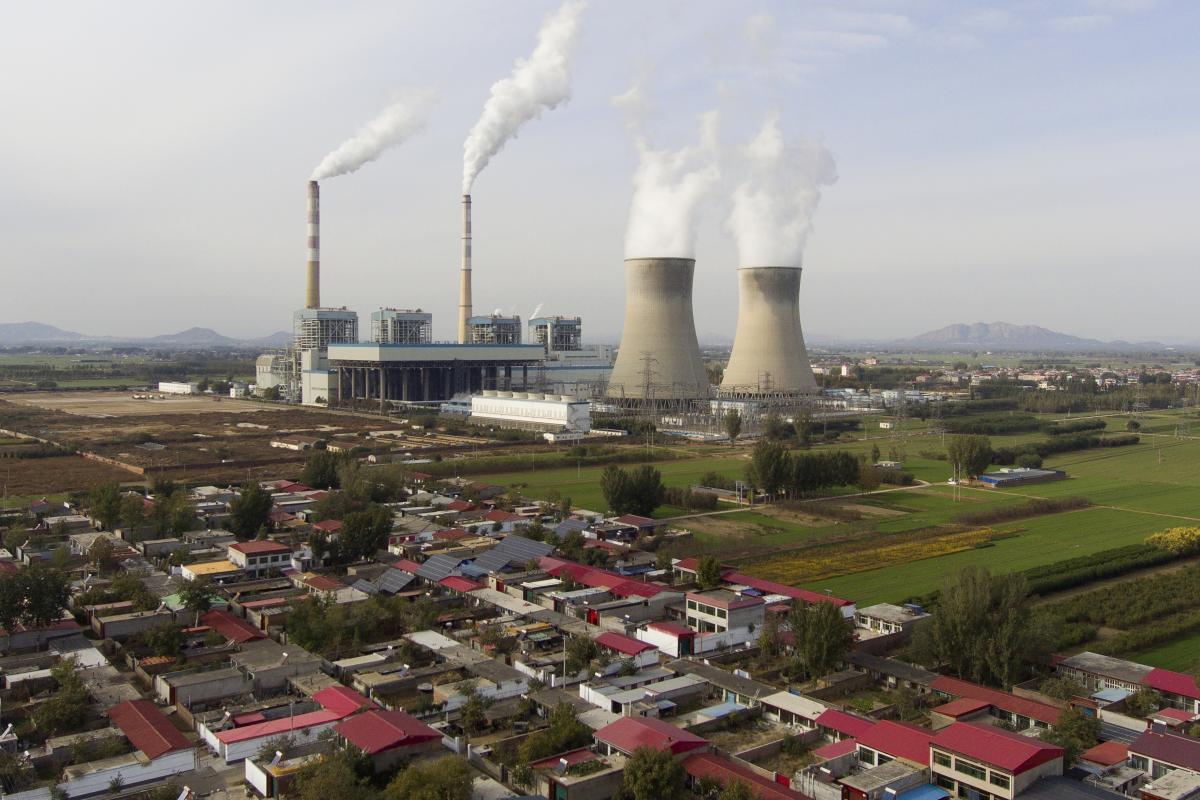The world is significantly off track in its efforts to curb global warming in 41 of 42 crucial measurements and is heading in the wrong direction in six crucial ways, a new international report calculates.
The only positive development is that global sales of electric passenger vehicles are now on track to meet the required levels — alongside other changes — to limit future warming to just an additional couple tenths of a degree, according to the State of Climate Action report released Tuesday by the World Resources Institute, Climate Action Tracker, the Bezos Earth Fund, and other organizations.
However, the report also highlights that public spending to promote more fossil fuel use is increasing at a faster rate than before, as stated by study co-author Kelly Levin, science and data director at the Bezos Earth Fund.
“This is not the time for minor adjustments, but rather for radical decarbonization of all sectors of the economy,” Levin emphasized.
“We are woefully off track, and we are witnessing the consequences of inaction unfold around the world from extensive wildfire fires in Canada, heat-related deaths across the Mediterranean, record high temperatures in South Asia, and so on,” she said.
Later this month, crucial international climate negotiations start in Dubai that will include the first-ever global stocktake on how close society is to meeting its 2015 climate goals. In advance of the United Nations summit, numerous expert reports are being published, assessing Earth’s progress, or mostly the lack thereof, including a United States national assessment with hundreds of indicators. Tuesday’s 42 indicators offer one of the grimmest report cards, detailing multiple failures of society.
The report examines what’s necessary in several sectors of the global economy — power, transportation, buildings, industry, finance, and forestry — to align with a world that limits warming to 1.5 degrees Celsius (2.7 degrees Fahrenheit) over pre-industrial times, the goal adopted by the world at Paris in 2015. The globe has already warmed about 1.2 degrees Celsius (2.2 degrees Fahrenheit) since the mid-19th century.
Six categories — such as the carbon intensity of global steel production, electric buses sold, loss of mangrove forests, amount of food waste, and public financing of fossil fuel use — are heading in the wrong direction, the report stated.
“Fossil fuel consumption subsidies reached an all-time high last year, over $1 trillion, driven by the war in Ukraine and the resulting energy price spikes,” mentioned report co-author Joe Thwaites of the Natural Resources Defense Council environmental group.
Another six categories were deemed as “off track” but moving in the right direction, which is the closest to being on track and better than the 24 measurements that are “well off track.” These include zero-carbon electricity generation, electric vehicles as a percentage of the fleet, two- and three-wheel electric vehicle sales, grazing animal meat production, reforestation, and share of greenhouse gas emissions with mandatory corporate climate risk reporting requirements.
Arizona State University climate scientist Katharine Jacobs expressed concern that this report indicates “too little, too late.” Despite not being involved in the report, she commended its comprehensive nature.
“I am not surprised that at a global scale, we are not meeting expectations for reducing emissions,” Jacobs mentioned in an email. “We cannot ignore the fact that global commitments to (greenhouse gas) reductions are essentially unenforceable and that a number of major setbacks have taken a toll on our progress.”
Dartmouth climate scientist Justin Mankin, who is not part of the report, explained that when trying to change an economy, the key is to start with “low-hanging fruit,” or the sectors of the economy that are easiest to transition and provide significant benefits. However, he stated that the report shows “we’re really struggling to pick the low-hanging fruit.”
Read more of AP’s climate coverage at http://www.apnews.com/climate-and-environment.
Follow Seth Borenstein on X, formerly known as Twitter, at @borenbears
Associated Press climate and environmental coverage receives support from several private foundations. See more about AP’s climate initiative here. The AP is solely responsible for all content.


